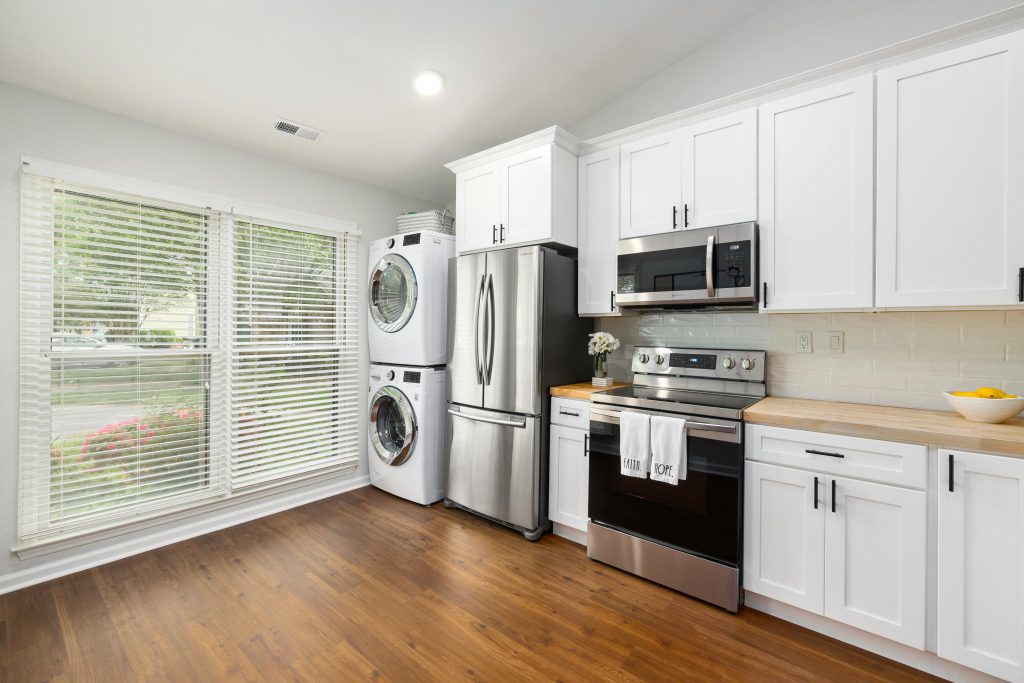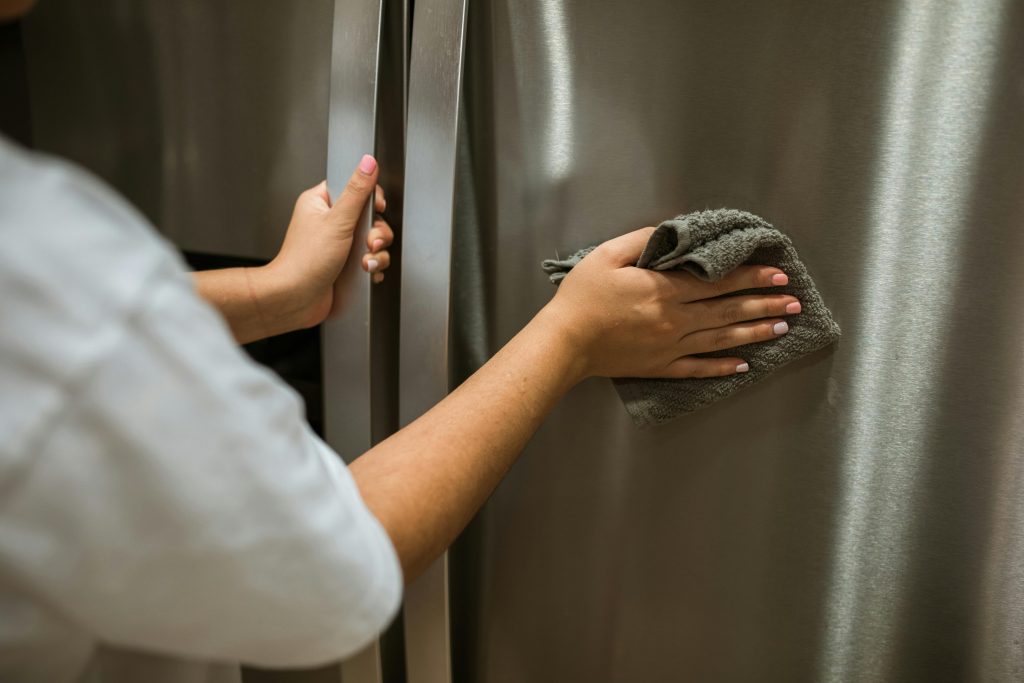When considering appliance energy efficiency ratings, it is crucial to comprehend the meaning of labels and ratings. These ratings are designed to assist consumers in making well-informed decisions regarding the energy consumption of appliances. The most prevalent rating system is the EU Energy Label, which is a European Union-backed symbol denoting energy efficiency.
The EU Energy Label can be found on a wide array of appliances, including refrigerators, washing machines, dishwashers, and more. The label provides information about the appliance’s energy consumption and aids consumers in comparing the energy efficiency of various models. In addition to the EU Energy Label, appliances also have an energy efficiency rating expressed in kilowatt-hours (kWh) per annum.
This rating offers an estimate of the yearly energy consumption of the appliance, enabling consumers to compare the energy efficiency of different models within the same category. Comprehending these ratings can assist consumers in making informed decisions about which appliances to purchase, ultimately resulting in lower energy bills and reduced environmental impact. By selecting appliances with higher energy efficiency ratings, consumers can reduce their utility bills and decrease their carbon footprint.
Summary
- Understanding appliance energy efficiency ratings is crucial for making informed purchasing decisions and reducing energy consumption.
- Tips for maximising appliance efficiency include regular maintenance, proper usage, and investing in energy-saving features.
- Upgrading to energy-efficient appliances can lead to significant long-term cost savings and reduced environmental impact.
- Utilising smart home technology, such as smart thermostats and energy monitoring systems, can further enhance energy savings.
- Eco-friendly home design and layout, including natural lighting and efficient insulation, can contribute to overall energy efficiency and sustainability.
- Regular maintenance and care for efficient appliances can prolong their lifespan and ensure optimal performance.
- Maximising appliance efficiency can lead to financial benefits such as lower energy bills and potential rebates or incentives from energy providers.
Tips for Maximising Appliance Efficiency
There are several tips for maximising appliance efficiency that can help homeowners reduce their energy consumption and save money on their utility bills. One of the most important tips is to choose energy-efficient appliances with high Energy Star ratings. These appliances are designed to use less energy while still providing the same level of performance, ultimately leading to lower energy bills.
Additionally, it’s important to properly maintain appliances by cleaning filters, coils, and vents regularly. This can help improve the efficiency of the appliance and prolong its lifespan. Another tip for maximising appliance efficiency is to use appliances during off-peak hours, when electricity rates are lower.
For example, running the dishwasher or doing laundry in the evening can help reduce energy costs. Additionally, using appliances at full capacity whenever possible can help maximise efficiency. For example, running a full load in the dishwasher or washing machine uses less energy per item than running multiple smaller loads.
By following these tips, homeowners can maximise the efficiency of their appliances and reduce their overall energy consumption.
Upgrading to Energy-Efficient Appliances

Upgrading to energy-efficient appliances is a great way to reduce energy consumption and save money on utility bills. When considering an upgrade, it’s important to look for appliances with high Energy Star ratings and other energy-efficient features. For example, choosing a refrigerator with advanced insulation and temperature control can help reduce energy usage.
Similarly, opting for a washing machine with a high spin speed and water efficiency can help save water and energy. In addition to choosing energy-efficient appliances, it’s also important to consider the size and capacity of the appliance. Choosing an appropriately sized appliance for your needs can help prevent unnecessary energy usage.
For example, choosing a refrigerator that is too large for your household can lead to wasted energy. By upgrading to energy-efficient appliances that are appropriately sized for your needs, you can reduce your energy consumption and save money on your utility bills.
Utilising Smart Home Technology for Energy Savings
| Smart Home Technology | Energy Savings |
|---|---|
| Smart Thermostat | Up to 10% on heating and cooling costs |
| Smart Lighting | Potential savings of up to 60% on lighting energy |
| Smart Appliances | Reduction in energy usage by up to 30% |
| Energy Monitoring Systems | Helps identify energy wastage and reduce consumption |
Utilising smart home technology is another effective way to maximise appliance efficiency and reduce energy consumption. Smart home devices such as smart thermostats, smart plugs, and smart power strips can help homeowners monitor and control their energy usage more effectively. For example, smart thermostats can learn your heating and cooling preferences and adjust the temperature accordingly, leading to reduced energy usage.
Similarly, smart plugs and power strips can be used to schedule when appliances turn on and off, helping to reduce standby power consumption. In addition to smart home devices, home automation systems can also help maximise appliance efficiency. These systems allow homeowners to control and monitor their appliances remotely, ensuring that they are only using energy when necessary.
For example, homeowners can use home automation systems to turn off lights, adjust thermostats, and control other appliances from their smartphones or tablets. By utilising smart home technology, homeowners can reduce their energy consumption and save money on their utility bills.
Eco-Friendly Home Design and Layout
In addition to upgrading appliances and utilising smart home technology, eco-friendly home design and layout can also play a significant role in maximising appliance efficiency. When designing or renovating a home, it’s important to consider factors such as natural lighting, insulation, and ventilation. Maximising natural lighting can help reduce the need for artificial lighting, while proper insulation and ventilation can help regulate indoor temperatures more effectively, reducing the workload on heating and cooling appliances.
Furthermore, incorporating energy-efficient design elements such as double-glazed windows, solar panels, and energy-efficient lighting can further reduce energy consumption. Double-glazed windows provide better insulation and reduce heat loss, while solar panels can generate clean and renewable energy for the home. Additionally, using energy-efficient lighting such as LED bulbs can significantly reduce electricity usage.
By incorporating eco-friendly design elements into the home, homeowners can maximise appliance efficiency and reduce their overall energy consumption.
Maintenance and Care for Efficient Appliances

Proper maintenance and care for efficient appliances are essential for maximising their performance and longevity. Regular maintenance tasks such as cleaning filters, coils, and vents can help improve the efficiency of appliances such as refrigerators, air conditioners, and dryers. Additionally, checking for leaks or blockages in appliances such as washing machines and dishwashers can help prevent water wastage and improve efficiency.
Furthermore, scheduling regular professional maintenance for appliances such as HVAC systems can help ensure that they are operating at peak efficiency. Professional maintenance tasks such as cleaning coils, checking refrigerant levels, and inspecting electrical components can help improve the performance of HVAC systems and reduce energy consumption. By taking care of appliances through regular maintenance and professional servicing, homeowners can maximise their efficiency and prolong their lifespan.
The Financial Benefits of Maximising Appliance Efficiency
Maximising appliance efficiency offers several financial benefits for homeowners. By choosing energy-efficient appliances with high Energy Star ratings, homeowners can save money on their utility bills over time. Energy-efficient appliances use less energy to operate, leading to lower electricity or gas bills each month.
Additionally, upgrading to energy-efficient appliances may also qualify homeowners for rebates or incentives from utility companies or government programmes. Furthermore, maximising appliance efficiency can also increase the resale value of a home. Energy-efficient homes are increasingly sought after by buyers who are looking to save money on their utility bills and reduce their environmental impact.
Homes with energy-efficient appliances and features may command a higher selling price on the market compared to homes with less efficient appliances. Ultimately, maximising appliance efficiency not only saves money on utility bills but also adds value to the home as a long-term investment. In conclusion, understanding appliance energy efficiency ratings is crucial for making informed purchasing decisions.
By choosing energy-efficient appliances with high Energy Star ratings and understanding their energy consumption ratings in kilowatt-hours per year, consumers can save money on their utility bills and reduce their environmental impact. Maximising appliance efficiency through proper maintenance, using appliances during off-peak hours, upgrading to energy-efficient models, utilising smart home technology, incorporating eco-friendly home design elements, and scheduling regular professional maintenance all contribute to reducing overall energy consumption. The financial benefits of maximising appliance efficiency include lower utility bills over time, potential rebates or incentives, and increased resale value for the home.
Ultimately, maximising appliance efficiency is a win-win situation for both homeowners’ wallets and the environment.
FAQs
What are some tips for using appliances efficiently to save money?
Some tips for using appliances efficiently to save money include using energy-efficient appliances, using appliances during off-peak hours, maintaining and cleaning appliances regularly, and using appliances at their optimal settings.
How can energy-efficient appliances help save money?
Energy-efficient appliances use less energy to operate, which can result in lower energy bills. Look for appliances with the Energy Star label, which indicates that they meet certain energy efficiency standards.
What are off-peak hours and how can they help save money when using appliances?
Off-peak hours are times of the day when energy demand is lower, typically during late at night or early in the morning. Using appliances during off-peak hours can result in lower electricity rates, saving money on energy bills.
Why is it important to maintain and clean appliances regularly?
Regular maintenance and cleaning of appliances can help them operate more efficiently, reducing energy consumption and extending their lifespan. This can ultimately save money on repair and replacement costs.
How can using appliances at their optimal settings help save money?
Using appliances at their optimal settings can help reduce energy consumption and improve their efficiency. For example, setting the refrigerator to the recommended temperature can help save energy and reduce electricity costs.


